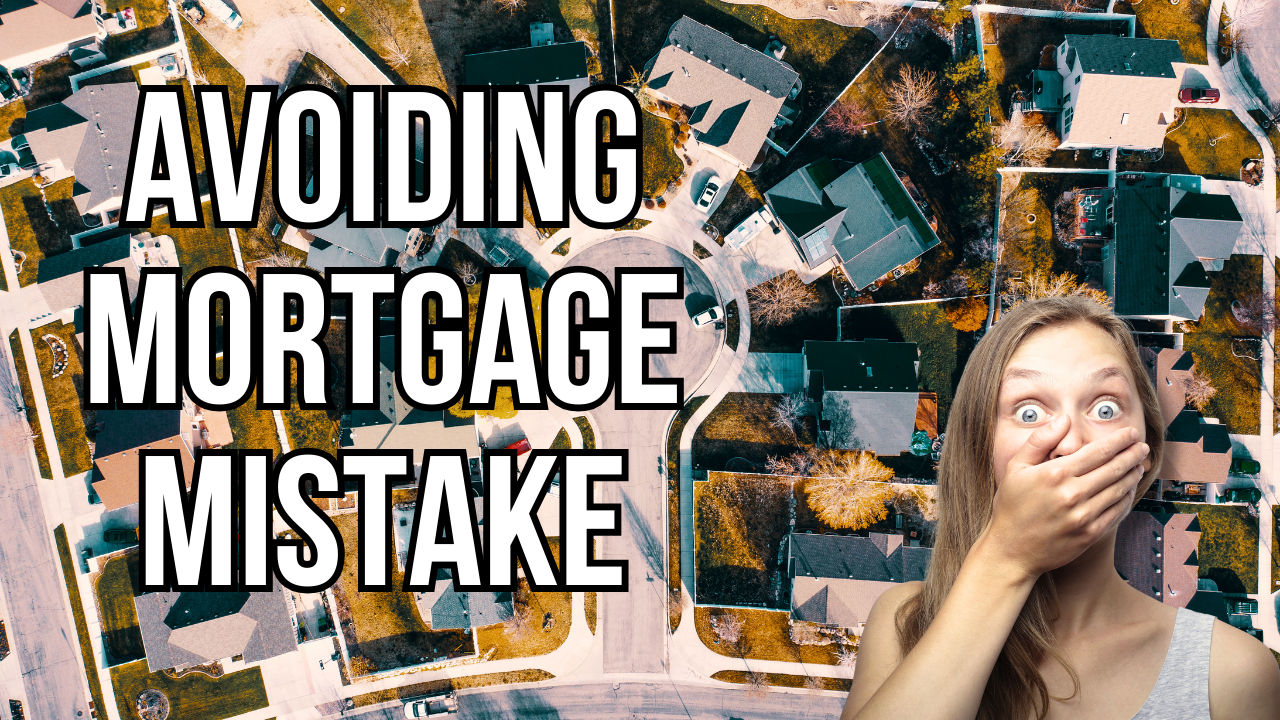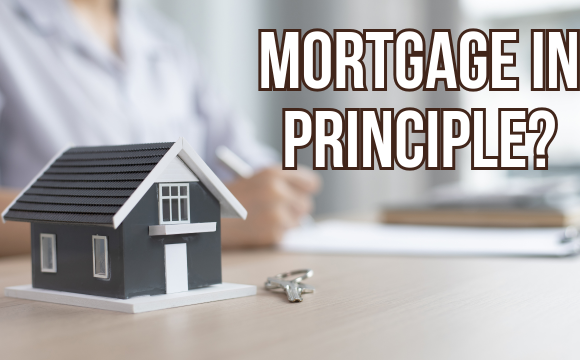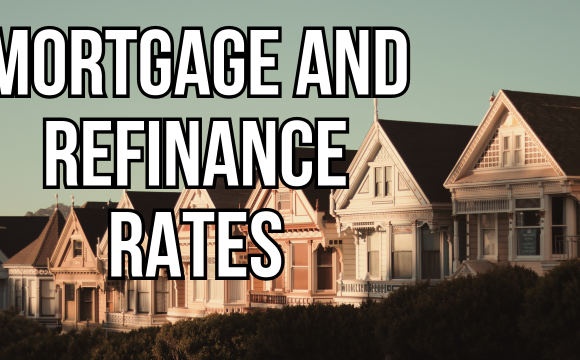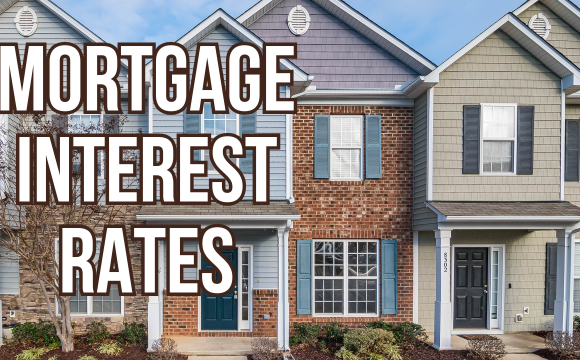A mortgage is one of the most significant financial commitments most people make in their lifetime. While it can be the key to achieving the dream of homeownership, making a huge mortgage mistake can lead to long-term financial stress. Understanding the potential pitfalls before signing on the dotted line is essential to protect your financial future and avoid unnecessary regret. Let’s dive into the biggest mortgage mistake and how you can steer clear of it.
What Is a Mortgage
Definition of a Mortgage
At its core, a mortgage is a loan secured by property, typically a house, that a borrower uses to purchase the home. In exchange for the loan, the borrower agrees to repay the lender over time with interest. While it seems straightforward, the complexity of mortgage terms can trip up even the most well-informed buyers.
Types of Mortgages
The type of mortgage you choose significantly impacts your finances:
- Fixed-Rate Mortgages: These loans come with a consistent interest rate throughout the life of the loan, offering stability.
- Adjustable-Rate Mortgages (ARMs): These start with a lower fixed rate that adjusts periodically based on market conditions, which can lead to unpredictability.
- Interest-Only Mortgages: These allow you to pay only interest for a set period, which can be risky if home values decline.
- Balloon Mortgages: These feature small initial payments with a large lump sum at the end—perfect for some but dangerous for others.
Understanding these options is crucial to avoid being locked into a loan that doesn’t suit your financial situation.
The Huge Mortgage Mistake Many Make
Overestimating Affordability
One of the most common mistakes is borrowing more than you can comfortably afford. It’s tempting to stretch your budget to secure your dream home, but doing so can lead to financial strain. Beyond the monthly mortgage payment, homeowners face costs like maintenance, insurance, and property taxes.
Ignoring Interest Rates
It’s not just about the price of the house—it’s also about the cost of borrowing. Even a slight difference in interest rates can add tens of thousands of dollars over the life of the loan. Many buyers rush into purchases without considering rate fluctuations or locking in high rates when they could wait for a better deal.
Skipping Pre-Approval
Skipping pre-approval is another rookie mistake. Without pre-approval, buyers risk falling in love with homes outside their budget or missing out on competitive deals due to a lack of preparation. Pre-approval provides a realistic budget and makes you a serious contender in competitive markets.
Not Understanding Loan Terms
Many buyers fail to understand the difference between fixed and adjustable rates or the long-term implications of a 15-year vs. 30-year loan. This lack of knowledge can lead to financial surprises down the road.
Hidden Fees That Catch Buyers Off-Guard
Closing Costs
These can amount to 2-5% of the home’s price and include fees for appraisal, title insurance, and loan origination. Many buyers fail to budget for these expenses, leading to last-minute financial scrambles.
Private Mortgage Insurance (PMI)
PMI is required when your down payment is less than 20% of the home’s value. This extra cost can increase your monthly payments significantly.
Home Maintenance and Property Taxes
Owning a home means taking on ongoing responsibilities. Property taxes can rise unexpectedly, and repairs like roof replacements or HVAC failures can cost thousands.
Poor Timing in Refinancing
Refinancing Too Soon
Jumping into refinancing without fully understanding the implications can lead to added costs. Many homeowners fail to calculate the break-even point—the time it takes for savings from refinancing to outweigh the costs.
Ignoring Break-Even Point
Refinancing isn’t always a good idea, especially if you plan to sell your home in the near future. Calculating whether refinancing aligns with your long-term goals is critical.
Tips to Avoid a Huge Mortgage Mistake
Set a Realistic Budget
Before house hunting, calculate how much you can afford based on your income, debts, and lifestyle. Don’t forget to include hidden costs like maintenance and insurance.
Educate Yourself About Loan Options
Researching various loan options and lenders can save you money and prevent future headaches. Knowledge is power when negotiating mortgage terms.
Consult a Mortgage Advisor
A qualified mortgage advisor can help you understand your options and avoid pitfalls. Their expertise ensures you make informed decisions.
The Emotional Side of Mortgage Mistakes
Buyer’s Remorse
One of the hardest parts of realizing you’ve made a mortgage mistake is the emotional toll. Overcommitting to a loan you can’t afford often leads to buyer’s remorse. Imagine settling into your dream home only to find the monthly payments leave no room for savings, travel, or emergencies. This regret can be overwhelming and long-lasting.
The Stress of Overborrowing
Taking on a mortgage beyond your financial means doesn’t just strain your wallet—it also impacts your mental health. The constant worry about making payments can lead to stress, anxiety, and even physical health issues. Overborrowing can turn the joy of homeownership into a daily source of tension.
The Long-Term Impact
Mortgage mistakes don’t just affect your present—they can derail your future. Overborrowing or refinancing at the wrong time might mean sacrificing retirement savings, college funds for your kids, or other long-term investments. Avoiding these pitfalls ensures your financial future remains secure.
Lessons Learned from Real-Life Mortgage Mistakes
Case Study 1: Overborrowing Disaster
Consider Sarah, a first-time homebuyer who stretched her budget to purchase a home at the top of her approval range. She failed to account for property taxes and unexpected repairs. Within two years, she was forced to sell the house at a loss. Her story highlights the importance of setting a realistic budget and leaving room for emergencies.
Case Study 2: Misjudging Adjustable-Rate Mortgages
John opted for an adjustable-rate mortgage to secure a lower initial payment, thinking he’d refinance before the rate increased. When interest rates spiked unexpectedly, his payments doubled, leaving him struggling to make ends meet. His experience shows the risk of gambling on market conditions.
Case Study 3: Skipping Inspections
Lisa fell in love with a home and skipped a thorough inspection to expedite the closing process. She later discovered costly structural issues that could have been caught during the inspection. Her mistake underscores the importance of due diligence when buying a home.
Conclusion
Making a huge mortgage mistake can have devastating consequences, from financial strain to emotional stress. However, with careful planning, research, and expert advice, you can avoid these pitfalls and secure a mortgage that aligns with your financial goals. Remember, it’s not just about buying a house—it’s about creating a stable, secure future for yourself and your family.
FAQs
- What is the biggest mistake first-time homebuyers make?
Overestimating what they can afford and failing to budget for hidden costs like taxes, insurance, and maintenance. - How do I avoid overborrowing on a mortgage?
Stick to a realistic budget, factoring in all potential expenses, and get pre-approved to understand your true borrowing capacity. - Are adjustable-rate mortgages a bad idea?
Not always, but they come with risks. If rates increase significantly, your payments could become unmanageable. - What are the essential steps before applying for a mortgage?
Set a budget, improve your credit score, research loan options, and get pre-approved before starting your house hunt. - How do closing costs affect the overall cost of a home?
Closing costs can add 2-5% to your home’s price. Failing to budget for these upfront expenses can leave you financially strapped.





